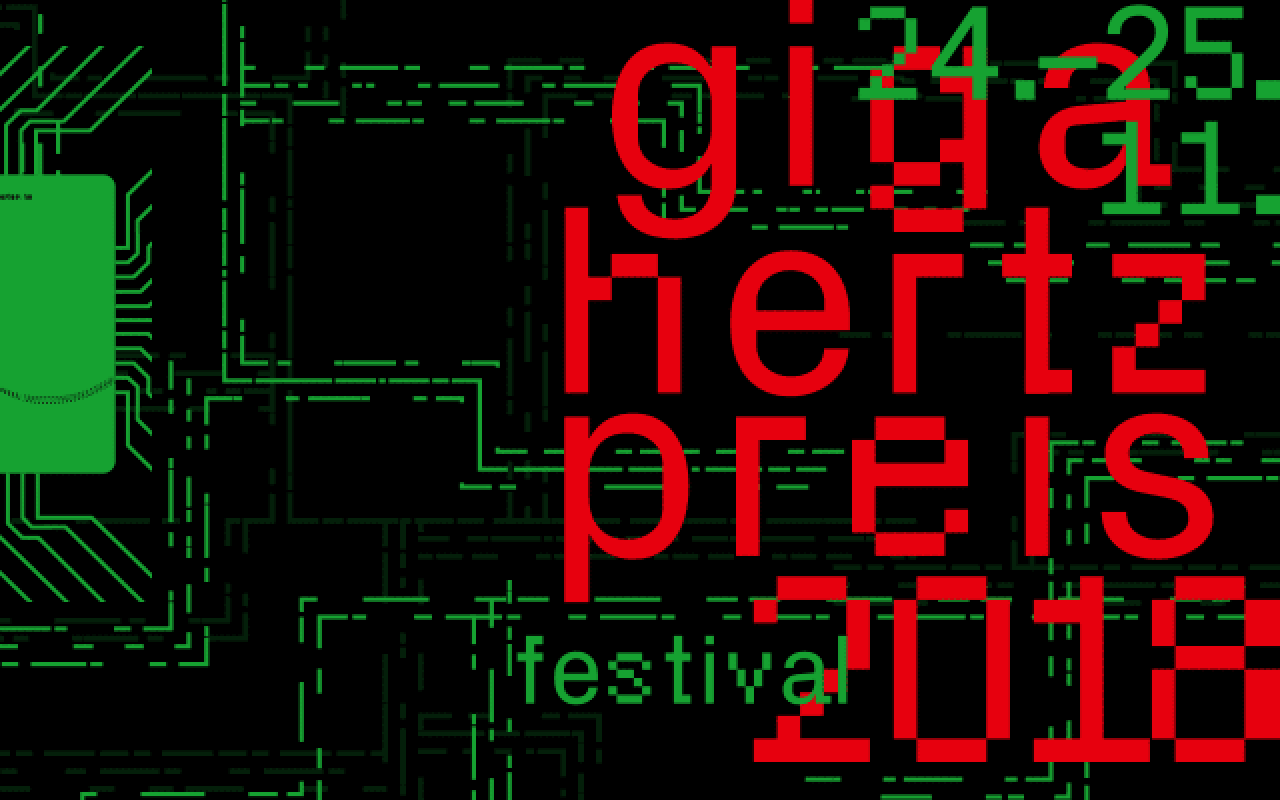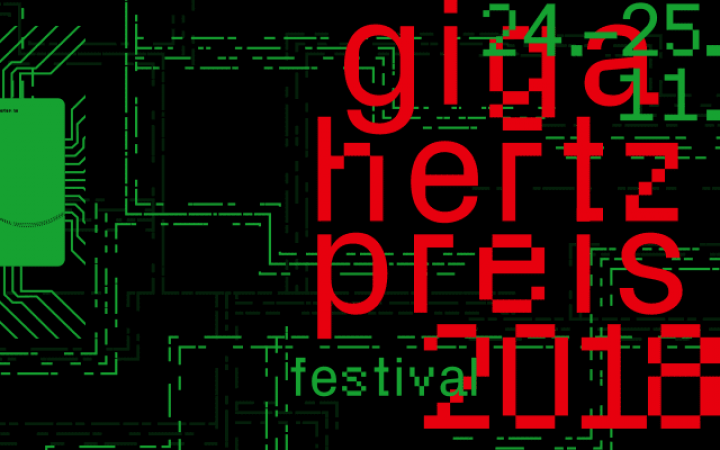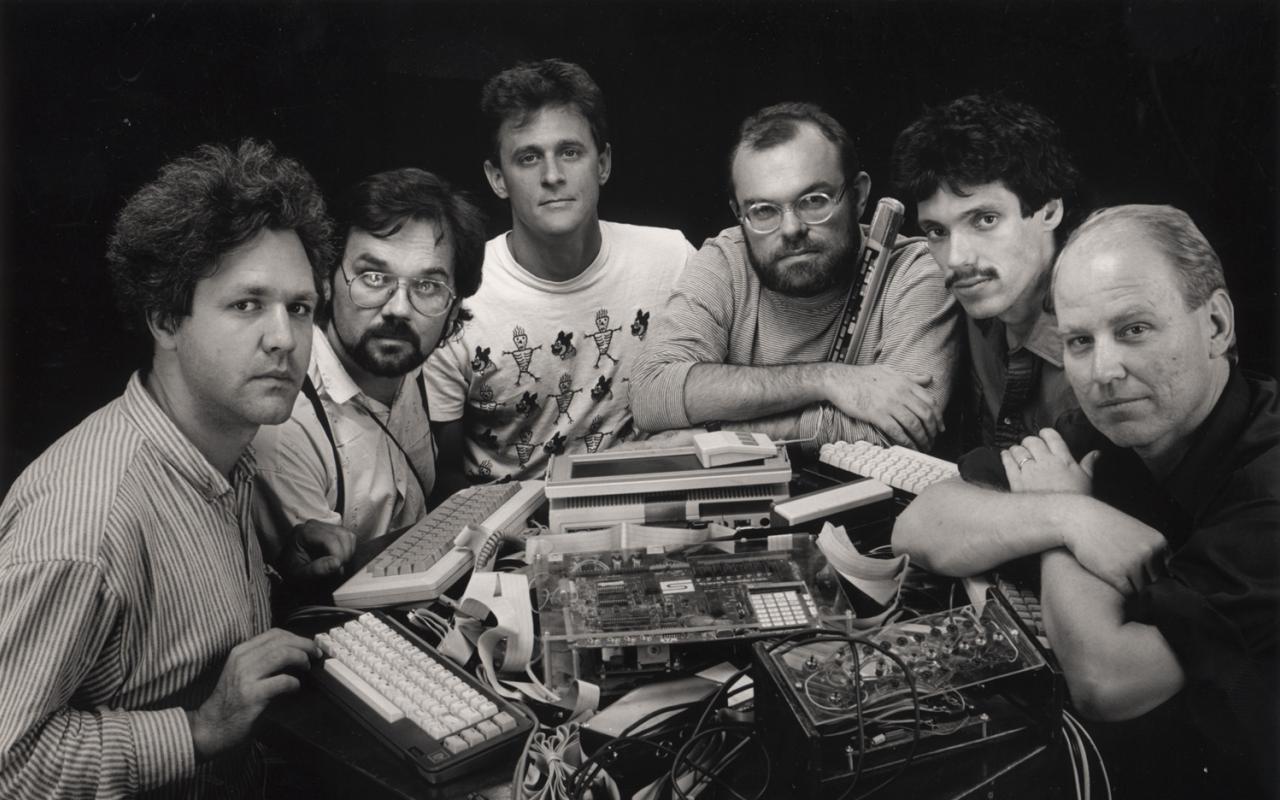
This year's Giga-Hertz Grand Prize for Lifetime Achievement, endowed with 10,000 euros, goes to John Bischoff, Chris Brown, Tim Perkis, Mark Trayle, Phil Stone and Scot Gresham-Lancaster, better known as »The Hub«.
Founded in 1986, the US network music ensemble emerged from the »League of Automatic Music Composers«, which explored the potential of the computer as a live musical instrument in the late 1970s. »The Hub« are among the pioneers in the field of network art, live coding and laptop ensembles.
Giga Hertz Production Award
The jury also nominated two outstanding works from around 150 international submissions: The artist duo »GRAYCODE, jiiiin«, consisting of Jinhee Jung and Taebok Cho, received the Giga Hertz Production Prize worth €4,000 for their audiovisual work »+3x10^8m/s, beyond the light velocity «for Fixed Media. In their piece, »GRAYCODE, jiiiin« make it possible to experience the expansion of the universe through sound. The second Giga Hertz Production Prize, also combined with prize money of 4,000 €, goes to Óscar Escudero for his composition »POV« (Point of View) for saxophone and fixed media. The saxophonist wears VR glasses: he is source and receiver of his actions, through the VR glasses he explores his actions from different »Points of View«.
Special Prize »Artificial Intelligence«
For the first time, an artist is also awarded the special prize »Artificial Intelligence« (endowed with 2,000 €): Martino Sarolli for his play »Lapidario_01«. Sarolli sonifies silicon crystals through the use of neural networks. David Bird also receives a special mention for his composition Decoder for Percussion and Live-Electronics (endowed with 1.000 €). His composition is characterized »by its simplicity with regard to technical means and the mediation of the human-machine relationship«.
Award ceremony and music
In addition to the festive award ceremony, a musical program awaits you this year as part of the event. The production prize winners »GRAYCODE, jiiiin« and special prize winner Martino Sarolli will present their award-winning works. An additional highlight will be the opening of the award ceremony by the EXPERIMENTALSTUDIO of the SWR, which will premiere the work by Huihui Cheng »Echo & Narcissus«, which was created as part of the Giga Hertz Production Prize 2016.
Program
Huihui Cheng »Echo & Narcissus« for soprano, alto, ensemble and live-electronics | |
Ensemble Experimental: Silke Evers, soprano Noa Frenkel, alto Andrea Nagy, clarinet Daniela Shemer, violoncello Olaf Tzschoppe, percussion | |
EXPERIMENTALSTUDIO of the SWR: Live-Electronic Realization Lukas Nowok, sound director Thomas Hummel, sound director Detlef Heusinger, conductor | |
GRAYCODE, jiiiiin: »+3x10^8m/s, beyond the light velocity«, Fixed Media
|
Speakers of the award ceremony
- Petra Olschowski, State Secretary
- Peter Weibel, Artistic and Scientific Director ZKM | Center for Art and Media
- Ludger Brümmer, Head of the ZKM | Hertz-Lab
- Detlef Heusinger, Artistic Director of the EXPERIMENTALSTUDIO of the SWR
- Palle Dahlstedt, composer and professor for »Art & Technology« at Aalborg University
- Golo Föllmer, author and private lecturer at the University of Halle-Wittenberg
- Moderation: Markus Brock
Special Award Artificial Intelligence 2018 | Martino Sarolli (Italy)
The Special Prize for an AI-related work is given to Martino Sarolli for his work »Lapidario_E01«. This is the first half of a distich about mineral life, conceived as a multi-channel piece for live electronics. Sarolli uses state-of-the art machine-learning technologies to re-synthesize a complex sound material under live control. »Lapidario_E01«, on the theme of silicon crystals - the very basis of computer technology - is composed by a human, but combines the best of both worlds. It is elegant, organic, and powerful.
– Author: Palle Dahlstedt

- Jury
Ludger Brümmer (Composer, Head of ZKM | Hertz-Lab)
Christiane Riedel (Managing Director of ZKM | Karlsruhe)
Alexandra Cardenas (Composer, Improviser, Programmer)
Detlef Heusinger (Artistic Director of SWR Experimentalstudio)
Palle Dahlstedt (Composer, Professor for »Art & Technology« at Aalborg Universität)
Björn Gottstein (Muscologist, Artistic Director of Donaueschinger Musiktage)- Organization / Institution
- ZKM | Center for Art and Media
Accompanying program
-
- Sun, November 25, 20186 pm
- Giga-Hertz-Preis 2018: Konzert II
-
Concert
Kubus
-
- Sun, November 25, 20184 pm
- Lecture of the Giga-Hertz main award winners 2018
-
Kubus
-
- Sat, November 24, 20187 pm
- Giga-Hertz Award 2018: Award Ceremony
-
Medientheater
-
- Sat, November 24, 20187 pm
- Giga-Hertz Award 2018: Concert I
-
Concert
Kubus
